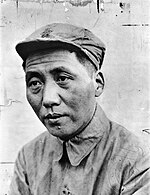
WEIGHT: 57 kg
Breast: 3
One HOUR:150$
Overnight: +60$
Services: Moresomes, Role playing, Strap-ons, BDSM (receiving), Cum in mouth
The military forces overwhelmed makeshift barricades with brute force as they made their way to Tiananmen Square—the site of weeks of mass protests by students and workers. Those barbaric events, which demonstrated the willingness of the Stalinist Chinese Communist Party CCP regime to do anything to stay in power, have gone down in history as the Tiananmen Square massacre. Yet most of deaths during that murderous assault were of workers who courageously tried to halt the progress of troops to central Beijing.
Estimates vary, but up to 7, were killed and 20, wounded. Moreover, in the reign of terror that followed throughout China it was the workers who received the harshest penalties, including lengthy jail terms and death sentences. Around 40, people were arrested just in June and July, mostly members of Workers Autonomous Federations that had sprung up in the course of the protests. Protesters in Tiananmen Square What is commonly depicted as the crushing of student protesters was in fact a wave of repression directed overwhelmingly against a mass movement of the working class.

What had begun in April as student protests calling for democratic reforms had swelled into the millions as workers joined the demonstrations by mid-May, making their own class demands. The Beijing Workers Autonomous Federation was established on April 20 with a handful of workers and rapidly expanded to become a major organising centre by mid-May.
On May 17, up to two million people marched through the centre of Beijing, the majority being workers and their families under the banners of their work units or enterprises.

Reflecting the impact of events in Beijing, Workers Autonomous Federations were established in a host of major cities, including Changsha, Shaoyang, Xiangtan, Hengyang and Yueyang. While moderate student leaders were intent on pressing the CCP bureaucracy for concessions on democratic rights, workers were animated by concerns over deteriorating living standards, soaring inflation and a wave of sackings and closures.


































